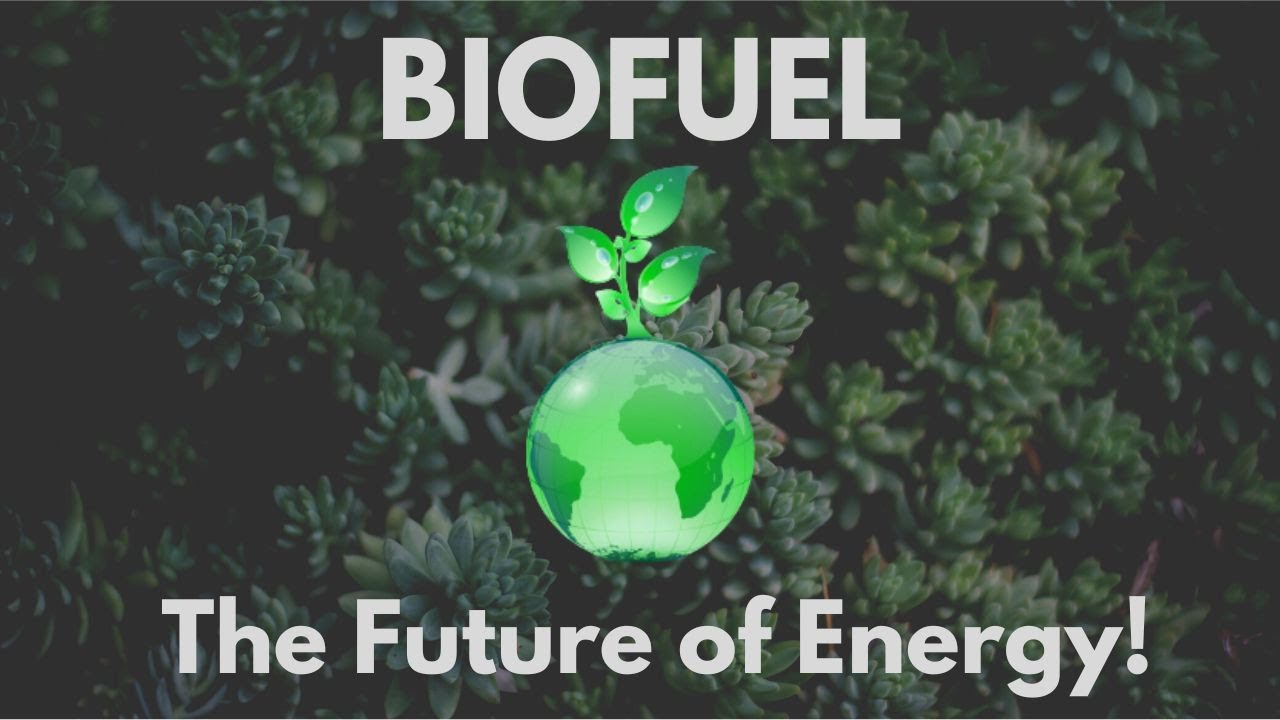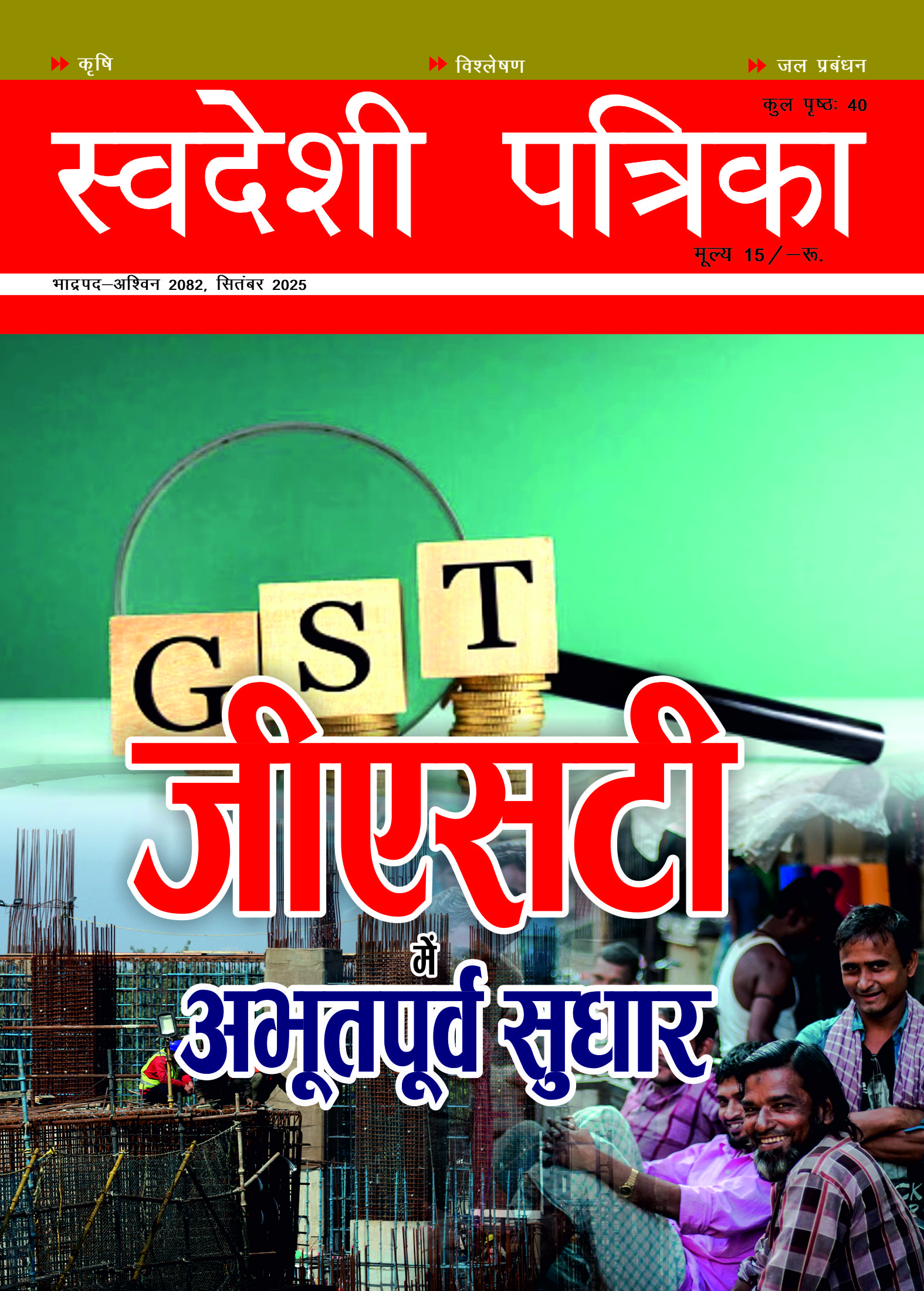
Biofuel - Economic and Environmental Impact
Biofuel has the potential of transforming the national economy and the lives of the entire population. — Vinod Johri
What began under Shri Atal Bihari Vajpayee, former Prime Minister, as a promising idea lay dormant for years until Prime Minister Shri Narendra Modi reignited the mission on Biofuels with full force and national purpose. Today, ethanol is not just fuel; it is a symbol of self-reliance, rural empowerment, environmental commitment, and national pride. As the world searches for practical climate solutions, Bharat is offering a blueprint: a model where energy, ecology, and economy move forward together.
A nation that was once heavily dependent on crude oil imports is now emerging as a global torchbearer in the biofuel revolution. Through a series of well-crafted policy reforms, strategic investments, and forward-looking initiatives, Shri Narendra Modi government has not only strengthened Bharat’s energy security but has also empowered rural communities, reduced foreign dependence, and elevated the country’s position in the global clean energy map.
Bharat is one of the fastest-growing economies in the world and the third-largest consumer of primary energy after the United States and China. With its share in global energy consumption expected to double by 2050, the country’s rising demand poses significant challenges. Over 87 per cent of Bharat’s crude oil needs are imported, exposing the economy to volatile global prices and geopolitical uncertainties. Furthermore, the excessive use of fossil fuels leads to increased carbon emissions and environmental degradation, resulting in rising health concerns.
To secure its energy future, Bharat needed a sustainable, indigenous alternative. Ethanol blending with petrol has emerged as a potent solution. Ethanol, derived primarily from sugarcane and other biomass sources, reduces carbon emissions, saves foreign exchange, and boosts rural income.
The National Biofuel Policy was comprehensively amended in 2018 to include more feedstocks for ethanol production. It advanced the target of 20 per cent ethanol blending in petrol from 2030 to 2025 to align with Bharat’s vision of energy self-reliance. This amended policy also aimed to promote the production of biofuels under the Make in Bharat programme by including units located in Special Economic Zones and Export Oriented Units. It allowed for the controlled export of biofuels and introduced critical administrative reforms, such as restructuring the National Biofuel Coordination Committee to ensure dynamic implementation.
The results of these initiatives have been outstanding. Ethanol blending increased from 188 crore litres in 2018-19 to more than 700 crore litres in 2023-24. The blending percentage rose from five per cent to approximately 14.6 per cent during the same period. The initial target was not only achieved ahead of schedule but was followed by an ambitious target of 20 per cent blending by 2025. As of January 2025, Bharat has already achieved around 19 per cent blending and is on track to reach 20 per cent blending ahead of the October target date.
The implementation of the E20 programme is expected to save around 4 billion USD annually in crude oil imports. E20 programme refers to Bharat’s initiative to blend 20% ethanol with 80% gasoline in petrol, creating E20 fuel. This biofuel program aims to reduce oil import dependency, lower greenhouse gas emissions, and support farmers by using ethanol derived from renewable sources like sugarcane and maize. More importantly, this success has already led to a crude oil substitution of about 193 lakh metric tonnes and saved foreign exchange worth over Rs1.13 lakh crore in the last decade.
One of the most transformative effects of the ethanol push has been on Grameen Bharat. Farmers are now seeing ethanol production as a new income avenue. Crops such as sugarcane, maize, and agricultural residues are being utilised not just for food but also for fuel. The increased demand has led to massive investments in distilleries and agro-processing units, generating rural employment and reducing migration.
Between 2014 and 2024, Rs 87,558 crore has been disbursed to farmers, while distillers have been paid Rs 1.45 lakh crore. The “Pradhan Mantri - Jaiv Indhan - Vatavaran Anukool fasal awashesh Nivaran Yojana”, shortly called PM-JI-VAN Yojana, modified in August 2024 and extended till 2029, now includes advanced biofuels made from agricultural waste, forestry residues, Syngas, and algae. This has further strengthened the agro-economy and promoted the idea of a circular economy in rural areas.
Bharat’s biofuel success has not gone unnoticed on the global stage. During its G20 presidency, Bharat led the formation of the Global Biofuels Alliance (GBA). The Alliance now includes 28 countries and 12 international organisations. It aims to transform waste into wealth, foster international cooperation, and establish global standards for biofuel development. This is a monumental diplomatic and environmental achievement that underscores Bharat’s leadership in clean energy.
Bharat has increased its solar power capacity 32 times, becoming the third-largest solar power producer in the world. The country’s clean energy capacity has grown from 76.38 GW in 2014 to 228.28 GW in 2025, making it the fourth-largest in the world. The Bhadla Solar Park in Rajasthan is now the world’s largest solar park with a capacity of 2,245 MW.
Under the UJALA scheme, 36.87 crore LED bulbs have been distributed, resulting in energy savings and a major reduction in CO2 emissions. PM-KUSUM is solarising 49 lakh agricultural pumps, further strengthening Bharat’s commitment to clean agriculture.
The GOBARdhan scheme, launched under the Swachh Bharat Mission, is converting cattle dung and agricultural waste into biogas and organic manure. It is empowering gram panchayats and rural entrepreneurs while supporting environmental sustainability.
Bharat has also made remarkable progress in conservation. The number of Ramsar sites has increased from 26 in 2014 to 85 in 2025. Thirteen beaches in Bharat have received the prestigious Blue Flag certification. The village of Palli in Jammu and Kashmir has been declared Bharat’s first carbon-neutral panchayat. The “Ek Ped Maa Ke Naam” campaign led to the planting of over 142 crore trees, reflecting the Modi government’s commitment to environmental stewardship.1
The Paris Agreement — a global treaty for limiting global warming — does emphasise transitioning to biofuels, substituting reliance on fossil fuels. Brazil’s RenovaBio programme provides for an increase in biofuel production and consumption. Similarly, the UN Renewable Energy Agency encourages international cooperation in promoting biofuel production and trade. Bharat, being a signatory to the Paris Agreement, has been actively following the commitments to address the issue of global warming and defined five goals (Panchamrit) — announced by the Prime Minister at COP 26 in Glasgow. The larger goal is to achieve net zero emissions by 2070 through identified action points. It is heartening to know that we have already achieved one goal before the scheduled date (50 per cent energy requirement from renewable energy) of 2030.
Recent Government data shows that our energy needs of more than 50 per cent are being met from non-fossil fuel resources. In this, solar-based power generation is emerging as a key player and contributor. Historically, Bharat has long depended on imported crude, with over 85 per cent of its oil coming from abroad. This economic reality ties Bharat’s fate to the ‘petrodollar’ system: global oil transactions conducted in US dollars, a system that not only enriches oil-exporting countries but reinforces US financial hegemony. The consequences — Bharat’s economy suffers due to supply disruptions, OPEC+ cartel manoeuvring, and the price shocks as a result of geopolitical turmoil. The 2022-23 energy crunch triggered by the Russia-Ukraine conflict, which sent oil prices and inflation soaring, is only the most recent reminder that dependence on mineral oil can inflict swift and severe pain. The US Government’s new move to impose 100 per cent duties on countries that are importing oil from Russia reflects the vulnerability of countries like Bharat who import a substantial quantity from Russia to meet their domestic demands. One has to wait and watch to understand the real implication of such a condition on our economy and geopolitical relationships.
But the true cost of fossil fuels goes far beyond the market price at the pump. Our continued reliance on oil exacts invisible but massive tolls — polluted air, oil spills, respiratory illnesses, and the staggering reach of climate change. Globally, the International Monetary Fund estimated fossil subsidies (including hidden health and environmental costs) at a staggering $7 trillion in 2023. Such externalities are never reflected in the price of petrol, but the public pays for them all the same — in hospital wards, in lost crops, in balance-of-payments crises.2
Biofuel has the potential of transforming the national economy and the lives of the entire population. It is existential issue turning into opportunity. There are far more complex issues which need priority handling not only by the Government but by the people who are the primary stakeholders.
References-
1. The Pioneer 7 July 2025 - Ethanol and Biofuel Revolution under PM Modi: Bharat’s Green Energy Leap by Aseervatham Achary.
2. The Pioneer 19 July 2025 - Biofuel or No Biofuel? Bharat’s Hamletian Energy - Dilemma by Suman Bose/Dinesh Tyagi.
Vinod Johri: Former Additional Commissioner of Income Tax, Delhi


